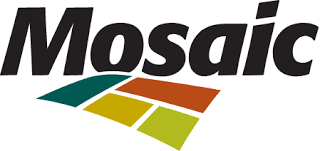Is Universal Health Services (UHS) a Buy in 2025? Discover key growth drivers, risks, and long-term opportunities in our in-depth stock analysis.
Featured Company Profile
UHS
Universal Health Services, Inc.
$171.7
11.06 Billion
N/A
N/A
Medical - Care Facilities
Healthcare
Stock Analysis: Universal Health Services (UHS) – Q4 2024
Investment Overview
Universal Health Services (UHS) delivered strong financial performance in Q4 2024, with solid revenue growth and disciplined expense management. The company's focus on acute and behavioral healthcare services continues to provide stable cash flow and operational efficiencies.
Verdict: Moderate Buy (Long-Term) / Hold (Short-Term)
- Short-term: Challenges from regulatory uncertainty and Medicaid reimbursements pose risks, making the stock a hold in the near term.
- Long-term: Expansion efforts, improving margins, and strategic investments make UHS a compelling long-term buy.
1. Short-Term Investment Outlook (2025-2026)
Challenges & Risks
🔴 Regulatory & Geopolitical Uncertainty
- Ongoing discussions regarding Medicaid reimbursement cuts and directed payment program (DPP) approvals create short-term revenue risks.
- The Biden administration's stance on provider taxes could impact hospital funding.
- Uncertainty surrounding exchange subsidies in 2026 could be a headwind, with UHS estimating a $50M potential impact if subsidies are removed.
🔴 Financial Risks (Capex, Profitability, Debt)
- Medicaid supplemental payments expected to decline slightly in 2025, impacting revenue.
- Self-insured professional liability reserves increased by $79M in 2024, signaling risk from litigation expenses.
- Capital expenditures of $944M in 2024 align with forecast but require monitoring for return on investment (ROI).
🔴 Market Competition & Industry Trends
- Rising competition in behavioral health services from specialized providers.
- Medicare Advantage (MA) enrollment growth benefits UHS, but reimbursement rates and prior authorization hurdles remain challenges.
- Shift in care settings from inpatient to outpatient puts pricing pressure on acute services.
Positives / Growth Drivers
🟢 Growth Drivers (New Hospitals, Expanding Services)
- Opened West Henderson Hospital in Las Vegas (Q4 2024); Cedar Hill Medical Center in Washington D.C. set to open in early 2025.
- Expansion into outpatient behavioral services to enhance revenue streams.
- Investments in electronic health records (EHRs) and automation to improve efficiency.
🟢 Strong Financial Position (Cash Reserves, Buybacks, Dividends)
- $2.067B cash from operations in 2024, up from $1.268B in 2023, showing strong liquidity.
- $1.17B borrowing capacity available for strategic investments.
- $599M in share repurchases during 2024, reducing outstanding shares by ~32% since 2019.
🟢 Operational Improvements (Cost Controls, AI, Efficiency Gains)
- Premium pay reduced to $60M per quarter, down significantly from $153M in Q1 2022.
- Wage inflation appears moderating, supporting margin expansion.
- Technology adoption in behavioral hospitals to reduce labor costs and improve patient care.
Verdict on Short-Term Investment
⚠️ Hold: Near-term headwinds from Medicaid reimbursement uncertainty and litigation risks make UHS a hold for 2025-2026. However, operational efficiencies and cash flow stability support a neutral outlook.
2. Long-Term Investment Outlook (2027 and Beyond)
Growth Drivers
🟢 Major Industry Tailwinds (Behavioral Health, Aging Population)
- Increased mental health awareness and demand for behavioral services.
- Expansion of Medicare Advantage coverage supports long-term patient volume growth.
- Shift toward value-based care models aligns with UHS's cost-efficient service delivery.
🟢 Core Business Strengths & Market Position
- Diversified revenue streams across acute and behavioral health reduce risk.
- Scale advantages allow UHS to negotiate better reimbursement rates.
- Continued operational discipline supports long-term margin expansion.
🟢 International Expansion & Diversification
- UHS is expanding its outpatient and specialty services to capture more of the healthcare continuum.
- Growth in military and veteran behavioral health programs provides a unique long-term opportunity.
Long-Term Risks
🔴 Competitive Landscape & Disruptors
- Tech-driven telehealth and outpatient mental health services may pressure traditional inpatient business.
- Potential new entrants in behavioral healthcare could challenge UHS’s pricing power.
🔴 Macroeconomic & Policy Risks
- Potential cuts to Medicaid and government healthcare programs.
- Changes in provider tax structures could affect state-level reimbursement models.
- Risk of economic downturns impacting patient volumes and elective procedures.
Verdict on Long-Term Investment
✅ Strong Buy: UHS’s scale, cost control strategies, and behavioral health leadership position make it a compelling long-term investment. Expansion into outpatient services and technology-driven efficiency gains provide additional upside.
3. Quality of the Business
- High Quality: Strong cash flow generation, leading market position, and disciplined cost control.
- Moderate Risk: Some uncertainty due to Medicaid reimbursement dynamics and litigation expenses.
- Speculative: Not highly speculative; stable earnings profile mitigates downside risks.
Final Investment Assessment
📌 Short-Term (2025-2026): ⚠️ Hold due to regulatory uncertainty and potential reimbursement headwinds.
📌 Long-Term (2027+): ✅ Strong Buy with secular tailwinds in behavioral health and cost-saving initiatives driving sustained growth.
4. Additional Enhancements
✅ Sector & Industry Classification: Healthcare - Hospitals & Behavioral Health.
✅ Macroeconomic Insights: Medicaid reimbursement trends, labor market stabilization, and hospital supply chain cost controls.
✅ Stock Buybacks & Dividends: Aggressive repurchase program signals confidence in long-term value.
✅ Technological Advancements: EHR expansion and automation improvements support cost efficiencies.
✅ CEO & CFO Statements: Confidence in mid-single-digit EBITDA growth for 2025, despite some Medicaid uncertainties.
Disclaimer:
The information provided in this article is for educational purposes only and should not be construed as investment advice. estima...
Author
Shaik K is an expert in financial markets, a seasoned trader, and investor with over two decades of experience. As the CEO of a leading fintech company, he has a proven track record in financial products research and developing technology-driven solutions. His extensive knowledge of market dynamics and innovative strategies positions him at the forefront of the fintech industry, driving growth and innovation in financial services.


